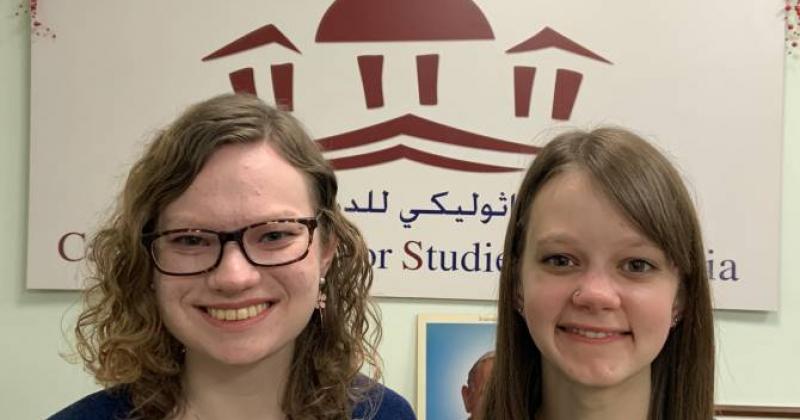“The conferences on media ethics seem especially fruitful considering that those in attendance come from diverse religious backgrounds and therefore, presumably, appeal to different sources for ethical standards.”
Faith leaders and journalists are continuing to push for the reform of media and multi-faith efforts within the Arab world.
“The Media and Their Role in Defending the Truth” was hosted in Amman in June of 2019. The regional conference brought together reporters from several media centers and representatives of Catholic patriarchs in the Middle East.
In the Muslim-majority country of Jordan, Christians make up less than 1 per cent of the population. Nevertheless, the country is known for its peaceful common living among peoples and religions.
“The conference has been very fruitful,” Deborah Castellano, correspondent for Zenit Rome, said. “It has been a very engaging dialogue between people of different faiths, dedicated to different views of the role of media and the proper treatment of the situations in the Middle East and throughout the world.”
The highlight of the conference was the signing of the Media Code of Ethics. Its ten bullet points open with the “commitment in the field of media to highlighting the bonds of closeness and cordiality among all people,” and closes with “supporting cooperation with individuals as well as public and private institutions in order to serve and defend the truth.”
The Media Code of Ethics additionally calls for the respect of human dignity through the use of social media. Social media usage in the Middle East and North Africa (MENA) region has continued to increase in recent years, reflecting the vital role of technology and social media in Middle Easterners’ lives.
Another repeated topic within the Media Code of Ethics is religion. The Code promises to respect the dignity of religions and to support efforts that stand against negative discourse on the grounds of religion, race, and other terms.
In other parts of the Code, religion is not explicitly stated though its written messages still largely uphold the morals of the religious leaders in attendance. Overall, the Code of Ethics calls on journalists to actively move towards dignity and truth rather than passively drifting towards strife and schisms. The signing of the document and the larger events of the conference seem to be a flicker of hope, demonstrating that a thoughtful commitment to truth can and should be shared by individuals across several countries, occupations, and religious affiliations.
This year, in February 2020, the Arab Media Convention for Human Fraternity released a similar code titled the “Code of Ethics for Human Fraternity”, containing twenty points relating to the principles with which media should be conducted. Members of a variety of religions were present at the convention, including the Secretary-General of the Council of Muslim Elders, the former adviser to the Grand Imam, and a representative of His Holiness Pope Francis.
The document’s twenty points promote values such as “freedom of expression as a human right,” promotion and protection of the family, “solidarity with migrants,” “promotion of the rights of women,” avoiding “the use of stereotypes,” and doing “nothing to promote acts of war and violence against humanity.”
Both the Media Code of Ethics and the Code of Ethics for Human Fraternity provide valuable metrics for journalists and other media professionals to gauge their content’s ability to promote unity and fraternity. These conferences seem especially fruitful considering that those in attendance come from diverse religious backgrounds and therefore, presumably, appeal to different sources for ethical standards.
Although Paul declares regarding Gentiles that “the law is written on their hearts” (Romans 2:15), the world today sees that law expressed very diversely in different places; to possess a universal kind of metric for media content creators is an incredibly valuable tool for uniting journalistic efforts across borders, religions, and affiliations.
In the words of the Catechism of the Catholic Church, “Human life is sacred” (CCC 2258). In line with the values expressed in these codes of ethics, the family should be protected and promoted (CCC 2209), migrants in need should be welcomed (CCC 2241), women have the right to equal dignity (CCC 2334), speech should be truthful and respectful (CCC 2477), and the avoidance of war and violence should be pursued at all costs (CCC 2308).
Perhaps most importantly, according to the Church, “journalists have an obligation to serve the truth and not offend against charity in disseminating information. They should strive to respect, with equal care, the nature of the facts and the limits of critical judgment concerning individuals” (CCC 2497). The values from each of the conferences appear to line up perfectly with the Church’s overarching goals of truth and charity in journalism.
It should be the hope of believers everywhere that media and journalistic efforts might be used to further charity, unity, truth, and fraternity among all peoples-- and these codes of ethics appear to be a notable step on the road to that destination.
